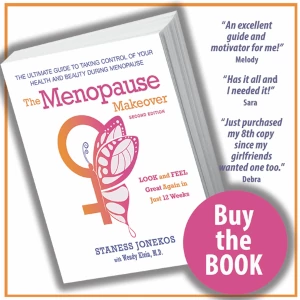 As a health advocate for menopausal women, I often see uncomfortable responses when I mention “vaginas,” from excessive feet tapping and unnecessary shifts in body position to painful grimaces. Even the word “menopause” evokes a squirm encouraging a change of subject. Combine these two words and it is no surprise the terminology used to diagnose menopausal vaginal symptoms needs rebranding.
As a health advocate for menopausal women, I often see uncomfortable responses when I mention “vaginas,” from excessive feet tapping and unnecessary shifts in body position to painful grimaces. Even the word “menopause” evokes a squirm encouraging a change of subject. Combine these two words and it is no surprise the terminology used to diagnose menopausal vaginal symptoms needs rebranding.
Last year, Novo Nordisk invited a small group of menopause bloggers to brainstorm
solutions that would help knock down those taboo vagina barriers, so women and
their health care providers could openly discuss vaginal atrophy … you may know it
as thinning and drying of vaginal walls due to declining estrogen.
One solution tossed on the vaginal atrophy think-tank table was changing the name
since the word “vagina” is already shunned in the media.
As reported in the New York Times a couple of years ago, three networks rejected a Kotex commercial, because it used the word vagina. When they subbed it with “down there,” one of the networks aired it.
Per the Merriam-Webster Dictionary, atrophy is defined as “a wasting away or progressive decline, decrease in size or wasting away of a body part or tissue.”
The 2012 Vaginal Health: Insights, Views & Attitudes (VIVA) survey found that as many as 75% of postmenopausal women felt vaginal atrophy had a negative impact on their life. Combine the word “vagina” with “atrophy” and this duo leaves many women feeling uncomfortable talking about this, leaving them to suffer in silence. Its taboo nature may be causing women to avoid seeking help.
How does a woman know if she should seek help? Common symptoms of vaginal atrophy are vaginal dryness and itching, painful urination, recurrent urinary tract infections and pain during intercourse.
If you suspect you are suffering from vaginal atrophy, discuss your symptoms with your health care provider. A symptom tracker with tips on how to discuss this potentially embarrassing topic with your health care provider is available at:
With so many treatments available, including over-the-counter lubricants, vaginal moisturizers and prescribed systemic and/or local hormonal and non-hormonal options, there is no reason a woman’s vaginal health needs to be compromised or her sex life retired because of terminology that can evoke shame or embarrassment.
So what’s in a name? When it comes to vaginal atrophy, a woman’s health and even her relationship may be compromised. No matter the name, don’t suffer in silence. Speak to your health care provider.
By Staness Jonekos, Co-Author The Menopause Makeover
Medical reviewer: Wendy Klein, MD, FACP
I am a member of GLAM™ (Great Life After Menopause), a women’s health
initiative sponsored by Novo Nordisk.
Visit www.VaginalDiscomfort.com for more information on the vaginal
symptoms associated with menopause and tips on how to speak with your doctor
about them.
















